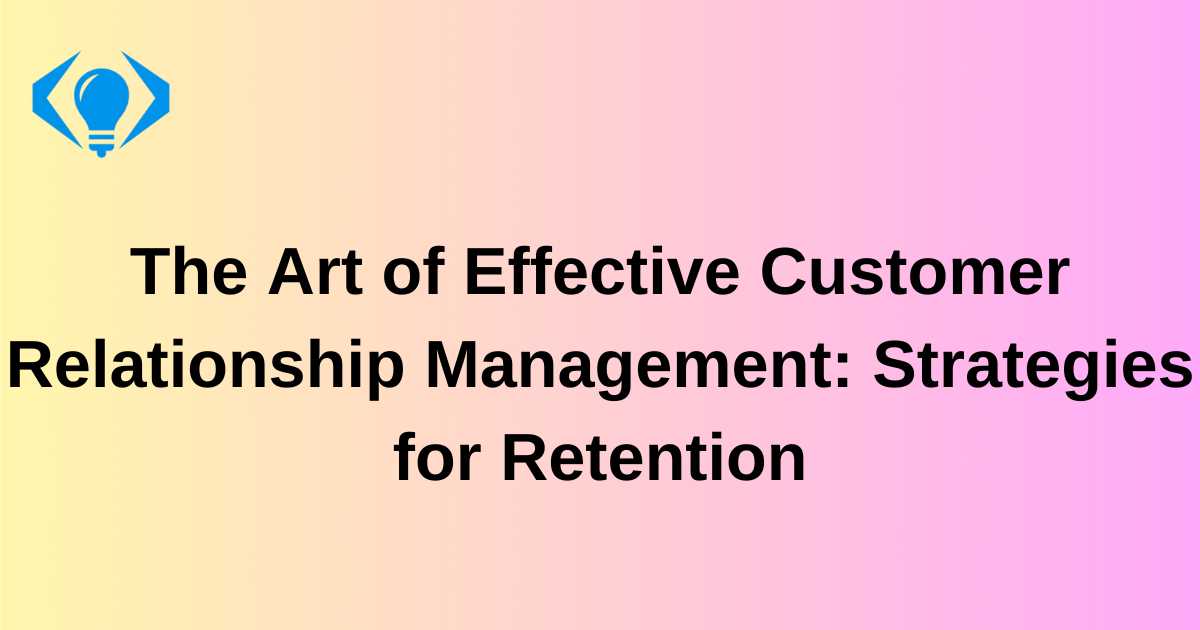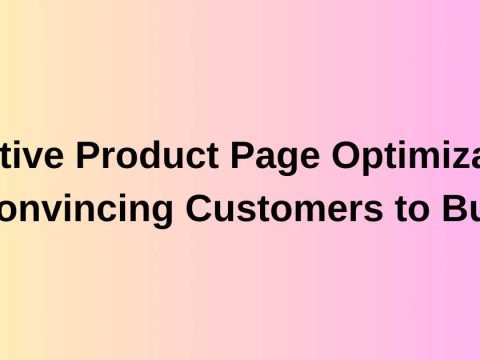
Optimizing Website Performance: Tips and Tricks for Faster Loading Time
January 21, 2023
An In-Depth Guide on the Types of Blockchain Nodes
March 15, 2023In today’s highly competitive business landscape, retaining customers and building long-term relationships is vital for sustainable success. Customer Relationship Management (CRM) plays a crucial role in nurturing customer loyalty and maximizing customer lifetime value. In this blog post, we will explore the art of effective CRM and discuss key strategies for customer retention. Let’s dive in!
Understand Your Customers
To build strong relationships, you must have a deep understanding of your customers. Invest time in gathering and analyzing customer data to gain insights into their preferences, behaviors, and needs. Leverage CRM software to centralize customer information, track interactions, and segment your customer base. By understanding your customers’ demographics, purchase history, and communication preferences, you can tailor your marketing efforts and provide personalized experiences that resonate with them.
Provide Outstanding Customer Service
Exceptional customer service is a cornerstone of effective CRM. Make it a priority to deliver timely and responsive support across multiple channels, including phone, email, live chat, and social media. Train your customer service team to be knowledgeable, empathetic, and proactive in addressing customer issues and inquiries. Strive to exceed customer expectations, resolve problems swiftly, and ensure a positive and memorable experience at every touchpoint.
Implement Personalization Strategies
Personalization is key to fostering customer loyalty. Use the customer data you’ve gathered to personalize your marketing messages, product recommendations, and offers. Address customers by their names in communications and tailor content based on their preferences and past interactions. Leverage automation and CRM systems to deliver targeted messages at the right time, through the right channels. Personalization demonstrates that you value your customers as individuals, enhancing their overall experience with your brand.
Build an Engaging Loyalty Program
Loyalty programs are effective tools for customer retention. Develop a loyalty program that rewards customers for their repeat business and advocacy. Offer incentives, such as exclusive discounts, freebies, or early access to new products. Gamify the program by introducing tiers or levels that customers can unlock based on their engagement and spending. Regularly communicate with program members, providing updates on their progress and offering additional perks to keep them engaged and motivated to stay loyal to your brand.
Seek and Act on Customer Feedback
Actively seek feedback from your customers to gauge their satisfaction and identify areas for improvement. Use surveys, online reviews, and social media monitoring to collect feedback. Pay attention to both positive and negative feedback and respond promptly and genuinely. Use the insights gained from customer feedback to make necessary enhancements to your products, services, and customer experience. By showing that you value their opinions and taking action based on their feedback, you build trust and loyalty.
Foster a Community
Create a sense of belonging and community around your brand. Encourage customers to connect with each other through social media groups, online forums, or dedicated communities on your website. Facilitate discussions, share valuable content, and provide opportunities for customers to engage with your brand and with one another. A strong community fosters customer loyalty, encourages advocacy, and creates a supportive environment where customers feel valued and connected.
Stay Top-of-Mind with Email Marketing
Email marketing remains a powerful tool for nurturing customer relationships. Regularly communicate with your customers through personalized and relevant email campaigns. Share educational content, product updates, exclusive offers, and personalized recommendations. Segment your email list based on customer preferences and behaviors to ensure more targeted and impactful communication. Use email marketing to stay top-of-mind with your customers and provide ongoing value beyond the point of purchase.
Continuously Improve and Innovate
CRM is an ongoing process that requires continuous improvement and innovation. Regularly evaluate your CRM strategies, metrics, and outcomes. Analyze customer behavior, engagement, and retention rates to identify areas of improvement. Embrace technological advancements and stay up to date with CRM tools and platforms. Continuously refine your strategies based on customer feedback, market trends, and evolving customer needs. By staying agile and adaptive, you can consistently deliver exceptional customer experiences and drive long-term customer loyalty.
Conclusion
Effective customer relationship management is essential for fostering customer loyalty and maximizing customer lifetime value. By understanding your customers, providing outstanding customer service, implementing personalization strategies, building an engaging loyalty program, seeking and acting on customer feedback, fostering a community, leveraging email marketing, and continuously improving and innovating, you can build strong and lasting relationships with your customers. Remember, CRM is an art that requires a deep understanding of your customers and a commitment to delivering exceptional experiences at every interaction. Embrace these strategies, adapt to changing customer expectations, and cultivate a loyal customer base that will fuel your business growth.




